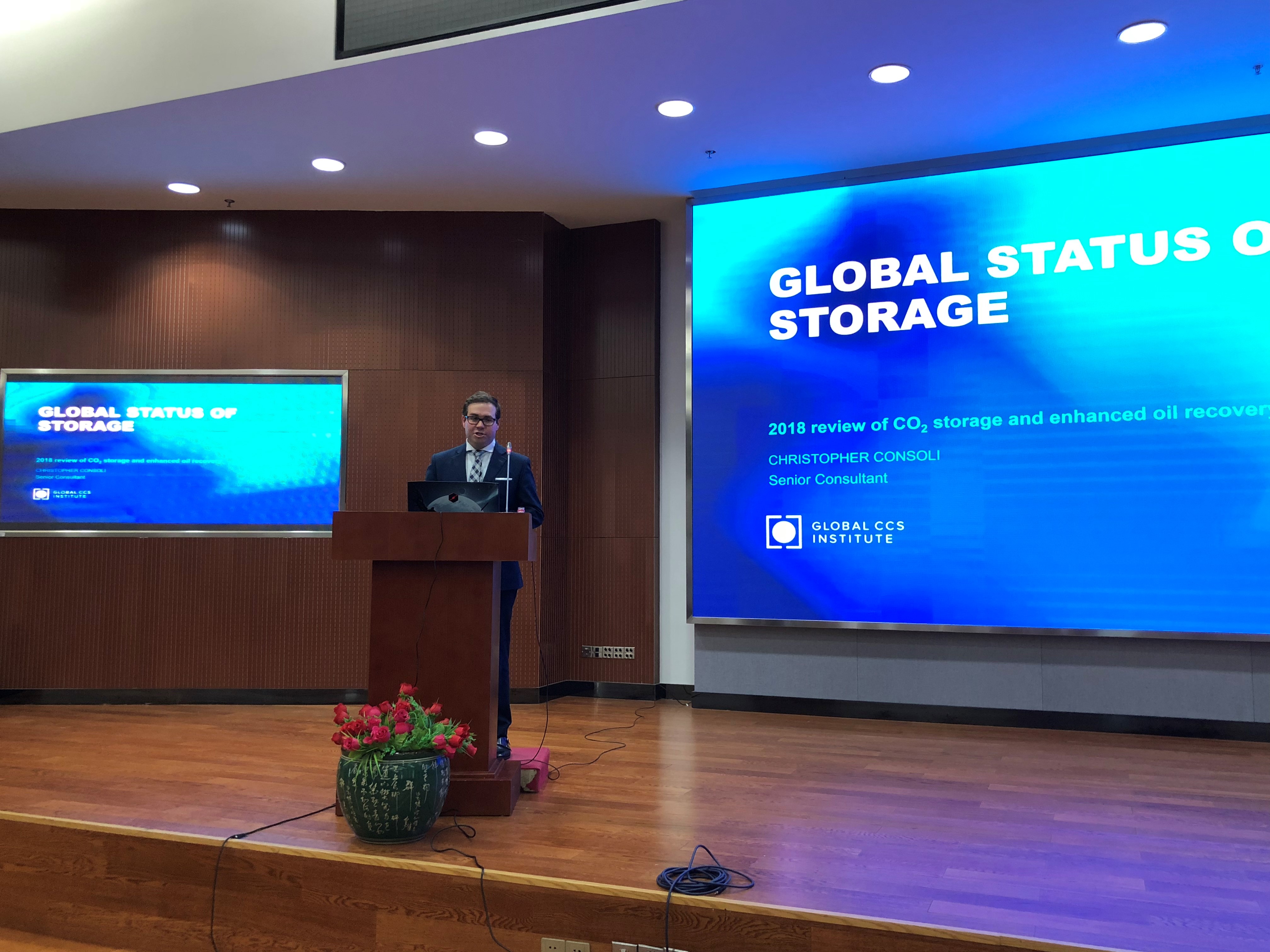Insights and Commentaries
China CCUS Forum 2018 held in Beijing
18th September 2018
Topic(s): Carbon capture, Economics, Education, Engineering and project delivery, use and storage (CCUS)
The 2018 Carbon Capture, Utilisation and Storage (CCUS) Forum was co-hosted by the Global CCS Institute and China University of Petroleum (Beijing), and held on 17-18 September in Beijing.
The Forum brought governments, embassies, industry representatives, research institutes and international organisations together to discuss the future path of CCUS with a focus on the oil and gas industry in China. Senior officials from the Climate Change Department of Ministry of Ecology and Environment, Chief Engineer of China 21st Century Agenda Management Center, Saskatchewan Province of Canada, Australian Embassy and the President of China University of Petroleum (Beijing) along with other experts and researchers participated in-depth discussions on the latest developments of CCUS technologies, barriers to deployment of large-scale CCS facilities and how to address, and eliminate, them.
The Forum agreed that CCUS is an essential technology to decarbonise major industries while sustaining their development to guarantee positive economic results and energy security. Lack of policy incentives and commercial feasibility is the predominant hindrance for large-scale CCS/CCUS deployment in China, which is also a common issue worldwide. The Forum also agreed that utilisation is the major and most prominent driver for CCS. Participants exchanged ideas and opinions on possible pathways to utilization, and CCS-EOR is the most feasible and cost-effective method of not only using but also storing CO2. In this regard, Jilin Oilfield CCS facility has an annual storage capacity of 0.6 million tonnes of CO2, making it the world’s 18th large-scale CCS facility in operation.

Dr Xiangshan Ma, Country Manager – China of the Global CCS Institute, hosted the session on CCS-EOR. Dr Chris Consoli, Senior Consultant – Storage, of the Institute, presented on the global status of CO2 storage. He mentioned that compared to water and chemicals, we refer to CCS-EOR as EOR+. Based on the Institute’s research, total storage capacity is far beyond the required capacity to reach the goals of the Paris Agreement. All we need is action. The Institute also noted that there is a gap between policy makers and practitioners, as well as those who capture and store CO2. It is where the Institute would be more than willing to work on, together with our Members, partners and the wider climate change community to accelerate the decarbonisation of major industries.
Undeniably, China recognizes the importance of CCS on its way to a near-zero emission future, and to fulfil Paris climate targets. Two other large-scale CCS facilities, the Sinopec Qilu Petrochemical CCS facility in Zibo (Shangdong Province), and the Yanchang CCS facility in Xi-an (Shaanxi Province) are at different stages of development, with capture capacity of 400,000 tonnes, and 410,000 tonnes of CO2 respectively.